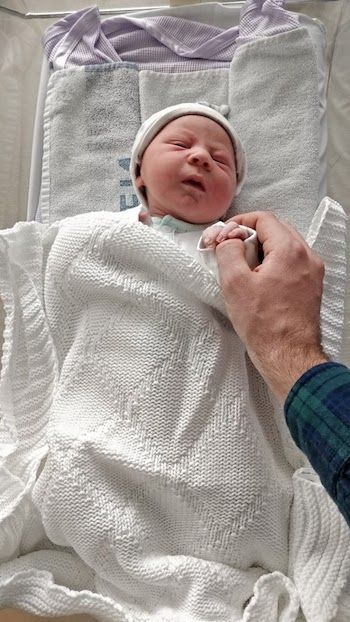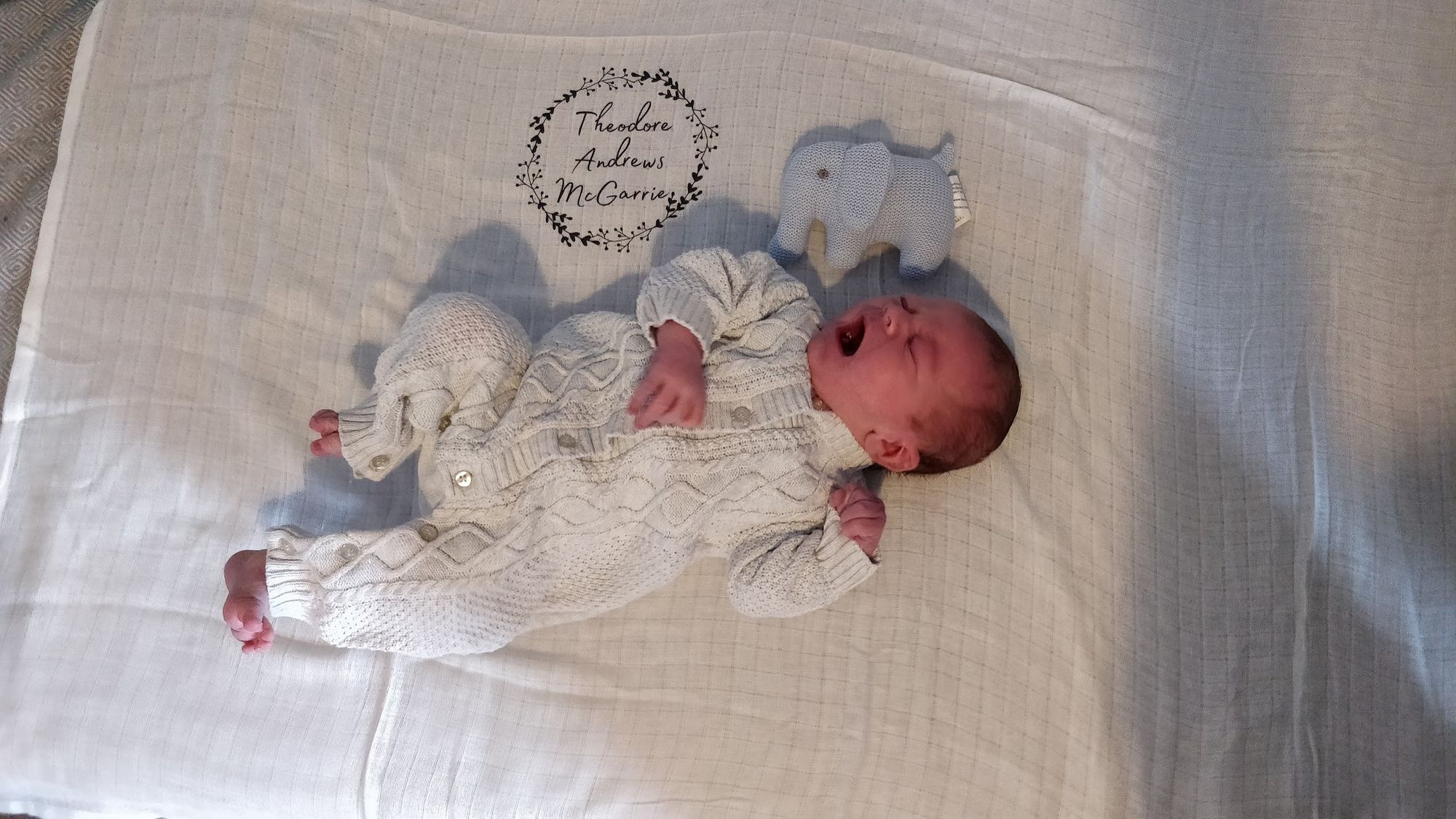Giving birth: the aftermath
Suddenly, after all of the chaos, uncertainty, drama and emotion, there’s silence. The midwives clear the room and fetch you tea and toast (you, the dad, will never be more grateful for a meal, but you can only imagine how your partner is feeling after that first mouthful). If you’re lucky, the new arrival is sleeping or nuzzling at the breast, and gradually, the waves of love, fear, elation and anxiety are washing over you less harshly.

At Birmingham Women’s Hospital we got a couple of hours in the delivery suite where Maddy gave birth before we were politely asked to vacate it. From there, we were taken up to the postnatal ward. I wish I could say that this was a happy, getting-to-know-you experience, but in reality it was quite a difficult comedown after the emotional rollercoaster of birth.
As a new dad you’re now conscious of being responsible for two people now: your partner, likely traumatised from what’s just happened to her, and now your offspring too. Admittedly you’re of limited use to the latter unless you’re also able to lactate, but being able to hold them while your partner does something, change them when they’re dirty and soothe them when they’re fussy are all useful things to support your partner.
It’s for these reasons that it’s so inexplicable that partners aren’t allowed to stay overnight on the postnatal ward. I could only be there from 8am-9pm – luckily Ted was born at 9.30am so we had almost 12 hours before I had to go, but it still seemed barbaric to me that I had to walk away and leave my partner and newborn baby alone together, meaning Maddy was solely responsible for the care of an infant while trying to recover herself from the ordeal of birth. As it turned out, her lamp didn’t work inside her curtained-off area, so she had to get help from a midwife using her phone as a torch to try to breastfeed Theodore.

Leaving the hospital that first night was tough for me, particularly having had time to hear about Maddy’s experiences the night before. While I’d been at home asleep, she’d begun contractions and had to manage the pain with only a hot water bottle and paracetamol. She couldn’t put her TENS machine on by herself, and when she managed to get to the front desk to ask for help, they didn’t believe she was that far into contractions, and said not to call me yet. By the time she phoned me, she was 5cm dilated and it was go time.
I went home, grabbed a quick meal, and phoned around to update people about the good news. I had a celebratory slug of whiskey to welcome my son into the world, then had what was probably the last unbroken night’s sleep I’ll have for the next year or two.

As soon as 8am rolled around the next day I was back in the hospital, listening to Maddy’s concerns after a pretty rubbish night on the ward. The open nature of the rooms meant she’d been kept awake all night by other babies crying (and setting off Ted), and the anguished tears of a woman in the adjacent bed who spent the whole night on the phone crying to her friends and family. She’d barely slept and was still getting to grips with the events of the previous 24 hours.
Meanwhile we were visited by a succession of people wanting to check blood pressure and heartrates (both Maddy’s and Ted’s), check hearing levels, and run various other tests and checks against them both. Again I was invisible at this stage, sometimes feeling in the way (and not just because of the tiny space we had, which was bordered by the offensive waste bin and the sink, helpfully waking us up whenever someone else needed to change a nappy). Maddy was happy with the meals, though, which were basically like school dinners. Her craving for quiche hasn’t subsided three weeks after the birth.
By 3pm we were told Ted had passed all his tests and we were good to go home, which we were elated to hear. This was snatched away from us soon after though as the midwives told us they needed to see more evidence of successful breastfeeding. Maddy, exhausted and emotionally drained, was struggling to get Ted to feed without falling asleep, and in the end I suggested giving him formula in order to give him some nutrients in the meantime. Maddy was convinced she’d be more successful feeding him when at home and not in the stressful surroundings of the hospital, so we managed to convince them to let us go. It was now 7.30pm.
We’d heard lots about hospital staff refusing to discharge newborns until they’d inspected the car and car seat and verified it was safe for the infant to travel in. After they discharged us and gave us the mythical red book, we were left completely alone to leave the hospital, get in the car, and go home. It was a slow drive and I tried to avoid every bump in the road, mostly successfully. At about 8.30pm we carried our son across the threshold of his home for the first time.

Tired, drained and hungry, we ordered pizza, then tried to go to bed. Ted wouldn’t stop crying and in my sleep-deprived state I tried to use every gadget, item of clothing and equipment that we’d bought all at once. Poor Ted, surrounded by noisy sheep, stuffed in a growbag, plonked in a SnuzPod and with two anxious parents poring over him, refused to go quietly. We barely slept that night, paranoid about having him in bed with us to feed in case we fell asleep, and afraid once we put him in his cot that he’d stop breathing or suffocate himself.
In the morning, though, waking up after limited rest but happy to be home, we found ourselves in possession of a bright-eyed, beautiful and healthy young boy. It was the beginning of something huge.
